 |
|
|
The process for doing the abalam background on the bay guitar is the same that I used on this rosette, but in this case the background is mammoth ivory. The material was supplied by the customer; the bridge blank was thick enough to get a nice slice from for inlay. |
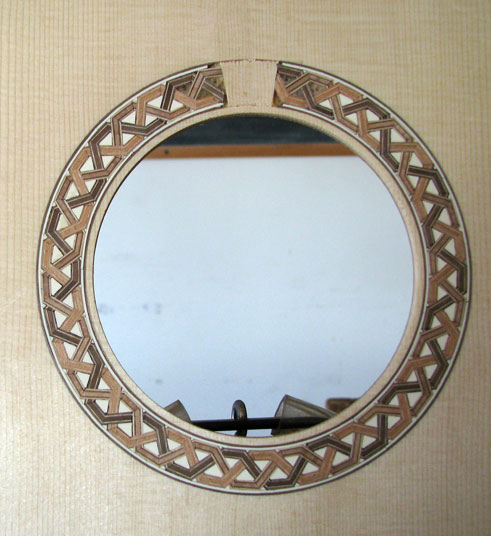 |
| The tiles are made up with plexiglas wherever the background will be, sliced from the logs, and glued in with hot hide glue as usual. Then the plexi pieces are drilled, and some acetone dropped in to dissolve the CA glue that they were assembled with. When the glue is soft the plexi piece can be popped out, and replaced with a piece of ivory or shell background such as you can see in this shot down near the tweezers. In this case small triangular sticks were made to fill in the corners, yielding the finished rosette. |
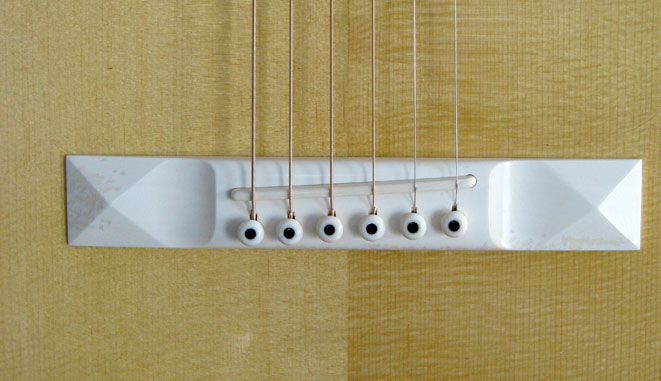 |
| Here’s the bridge itself, and, yes, the pins and saddle are mammoth ivory too. |
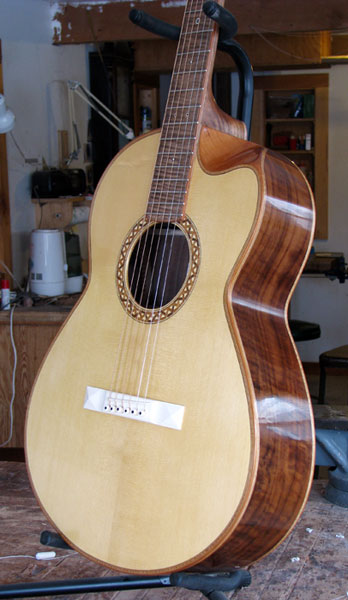 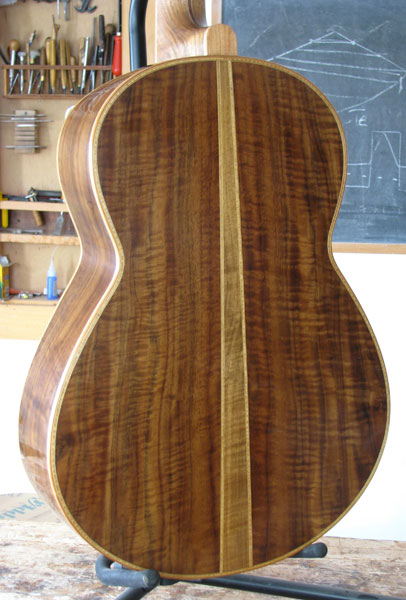 |
| The guitar has a red spruce top, with figured walnut back and sides. |
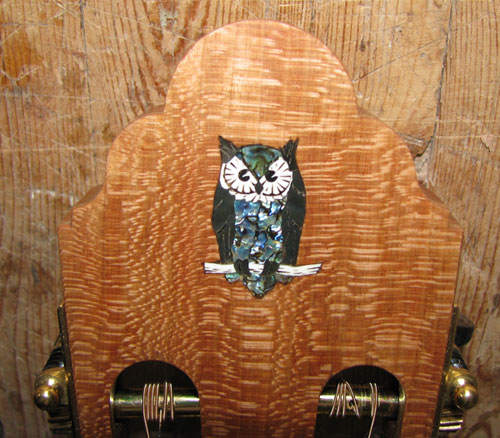 |
| I used some of the same ivory for the owl inlay on the headstock |
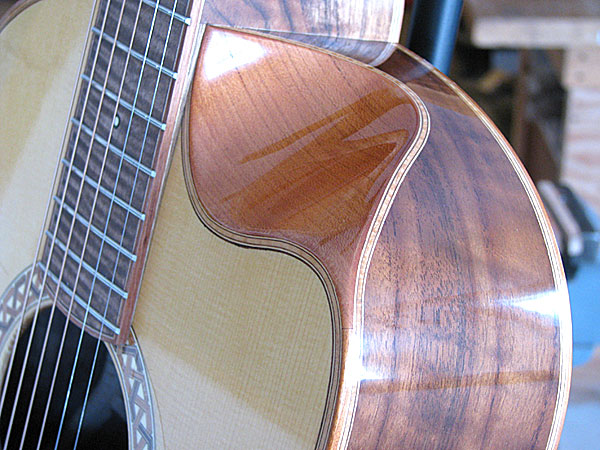 |
| This guitar also has a ‘recurved bevel’ cutaway. The bevel cut is a fairly new thing, as far as I can tell, and usually it’s done with pointy ends. That didn’t flow as nicely as I wanted, so I’ve made mine with recurves. It’s tricky to get things to tie in right, and the purfling takes some time, but it sure looks good. |
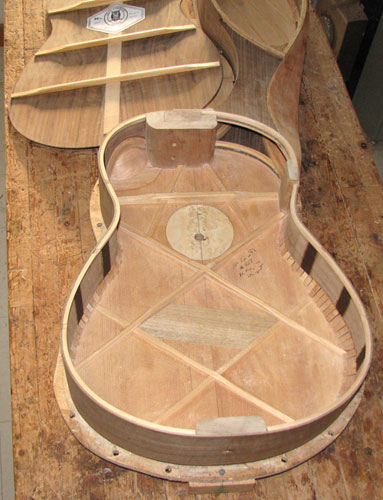 |
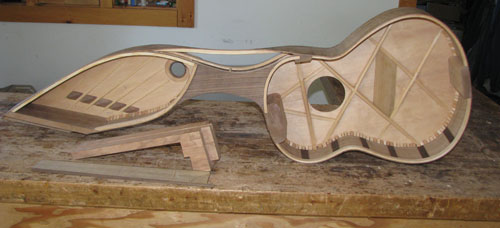 |
| The first instrument I used that bevel cut on is one I think of as the ‘Zen master’ since it’s ‘one with everything.‘ It’s a terz, tuned a third high, with bass harp strings, multi scale, a bevel cut and arm rest, and a ‘wedge’ body. Here are a couple of shots of it being assembled. For some reason I didn’t get any pics of it done! I should be able to remedy that soon. |
 |
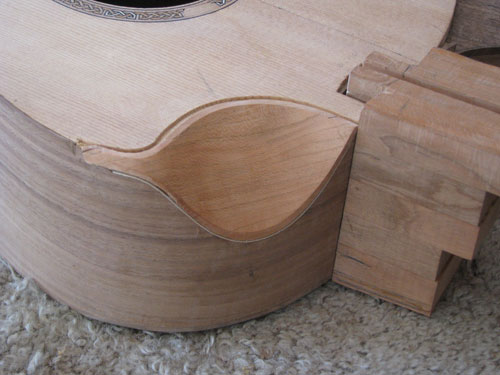 |
| Here’s how I cut the bevel, and the bevel itself as I was cutting the purfling in. |
| |
 |
 |
| That was my second harp guitar. The first was ‘the Beast’, and I’ve been thinking about that one for a long time. |

